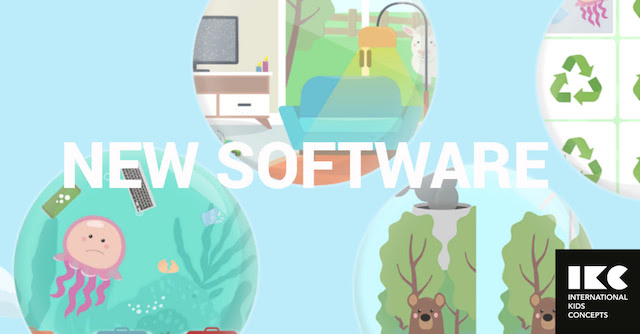What to do when your loved one refuses to go to Rehab?
The first step is to ensure that your own or other family members understanding of the situation is honest and true. Addiction split families as one member tries to help by covering up and minimising the damage that might occur from the addictive be
- Feb 21 2021
- 36
- 4717 Views

What to do when your loved one refuses to go to Rehab?
The first step is to ensure that your own or other family members understanding of the situation is honest and true. Addiction split families as one member tries to help by covering up and minimising the damage that might occur from the addictive behaviour, whilst others become angry, judgemental and withdrawing. Families themselves may find themselves in denial about their loved ones using as the truth is too painful to bear. Ensure that you are all standing together and are prepared to instil the same boundaries with the using loved one. It may be helpful to seek a professional consultation in order to put together a family plan.
Educate yourself about resources that can provide professional help for your loved one. Find out costs and procedures for admitting someone into treatment. Addiction treatment is expensive but there are means based or even free help available. It you know what substances are being used – find out what detox support may be needed.
Then decide what limits and boundaries you are prepared to put up with the loved one if they continue using. This may be anything from not being invited to family events to withdrawing financial support or telling them they need to move out of the house or removing children from their care. A professional counsellor can assist you in deciding which boundaries would be most effective.
Confrontations about your loved ones abuse of drugs or alcohol often happen after some kind of incident which has put either themselves or someone else at risk. This can be useful as the person concerned may considered the negative impact of their using more seriously. However, the confrontation often occurs when the loved one is either high or drunk or in withdrawal. No amount of rational reasoning will work at this time. It is important to choose the time carefully. It may be helpful to have a professional counsellor to assist you in the intervention, or least a good friend or someone that your loved one respects.
Addiction distorts rational thinking leading to a belief system that supports the ongoing use of the substance or alcohol. This means that your logical evidence of the damaging effects of the abuse will be met with blank faced denial, or at least lies, minimising and justification. Remember that the person being most lied to is themselves.
Express your ongoing love and concern for the person. Attacking their character or ‘poor self control’ will only alienate themselves from you and lower their already undoubtable low self esteem. Keep calm even in the face of an angry reaction. Withdraw yourself if the using loved one becomes abusive or aggressive.
Tell your using loved one how their using is affecting you – emotionally, physically and financially. Give specific examples. Try to avoid blaming them or making them feel guilty. Be prepared to also listen and let your loved one have their say. Don’t interrupt even when what they are saying does not make sense. Remember to point out your loved ones good qualities and times in their life when they have achieved and done well, and how you want that for them again.
People abusing mind altering substances, whether alcohol or drugs, struggle to make the connections between their using and the detrimental effects that it has on their lives. Make a note of how the using has affected the person concerned emotionally (mood swings, irritability, aggression, depression, anxiety), socially (relationships with family and friends have broken down, no longer enjoying hobbies and other pastimes), work (unemployment, absenteeism, lack of motivation), spiritually (little meaning and purpose in life) and lastly financially (broke, borrowing money, stealing). Your loved one may have put themselves or others at risk by drunk driving, going into risky areas, engaging in unhealthy relationships or having unprotected sex. Use opportunities during the confrontation to point out these problems.
It may help to talk about going to see a counsellor together as a family rather than talk about rehab which can be very scary for someone in the grips of addiction. The counsellor will then be able to assist your loved one to move towards accepting help.
If your loved one is unable to admit that the using is causing problems in their life and has no desire to stop using then it is time to communicate the limits and boundaries that you have already decided upon. Tell them that you love them and that you cannot sit by and watch them harm themselves and others around them. Tell them the limits and boundaries that the family have agreed to lay down – even write them down and hand them the paper. Tell them that you will assist them in every way you can should they decide to get help in stopping their using.
If your loved one agrees to stop using (as perhaps they have done in the past many times) put an agreement in place that if they relapse then they agree to go into treatment.
Your loved one may agree to stop using and get help but will then put excuses in place – “I may lose my job” or “I will go after Christmas”. Remain firmly together and respond that treatment must commence now or the boundaries will be put in place.
Be prepared for emotional blackmail – being accused of being the worst parents in the world, or of not loving the person concerned or even that it is your fault. Ignore any emotional battery and stick to your boundaries.
If you find that your attempts to help your loved one fail then this is the time to put those boundaries in place to protect both yourselves and your loved one. Seek professional help if you are unable to keep the limits in place.
Contact Rehab UK today for practical help on how to get help for a loved one or friend.
Rehab Cape Town provides perfect solutions for dual diagnosis patients in South Africa.
























